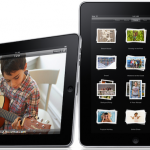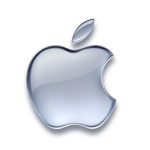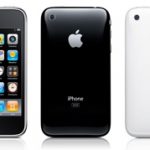When does online news cost too much?

My answer is $155. Yesterday, when checking my bank account, I found that Dow Jones had charged $155 for a year's Wall Street Journal online subscription. I had been expecting the same $119 charge as last year, which already was borderline too high but acceptable (I had a fulltime job 12 months ago). WSJ had gone too far with its pricing. I called customer service, cancelled the account and asked for a refund. The call wasn't easily made, because of the real and sentimental value received. I do regularly read the Journal online, and I have subscribed since 1996! No longer.
With that introduction, and before continuing with the post, I must ask: What price is too much for you to pay for online content? How much would you pay -- haha, if anything? What about digitized content, such as ebooks? What do you consider to be a fair price for new ebook titles, or older ones? Please answer in comments.
'Apple iPad was my idea'

I've been awfully hard on Apple's iPad, criticalness that I really should consider, for a surprising reason. With iPad, Apple took the approach that I recommended nearly a year ago. Microsoft's current, catchy PC operating system marketing campaign ends with some consumer asserting: "Windows 7 was my idea." Perhaps I should claim that "Apple iPad was my idea." ;-)
Some background: In early 2009, as the economy sucked growth from the PC market, netebook sales surged and Windows OEMs slashed prices, there were many calls by Wall Street analysts and pundits for Apple to release a netbook and to slash Mac prices. I opposed both ideas in several blog posts. I've called netbooks a menace, because they suck margins out of the PC market without offering much value to the computer manufacturer or netbook buyer. Meanwhile, Mac price cuts made no sense to me, even as more analysts called for them. Apple has established a premium brand that price cuts would jeopardize, all while reducing margins and offering little other business benefit. Apple had long priced against itself rather than against Windows PCs, which has been a successful strategy. Why change it?
Microsoft reports $19 billion quarter, lifted by $1.71 billion deferral

A year after global recession sapped Microsoft sales and the company announced its first-ever massive layoffs, real signs of recovery can be seen. The holiday quarter was as good to Microsoft as could be expected, given how much sales are dependent on large businesses -- the majority of which are still tightfisted with IT spending or are renewing licenses for fewer seats because of layoffs.
"We reported record revenue and record profits," Peter Klein, Microsoft's new CFO, asserted during a conference call this afternoon. He praised consumer sales, particularly for Windows 7 PCs. But Klein warned that "we have not seen a return of enterprise spending growth."
12 reasons why I won't buy an Apple iPad

Yesterday, I asked Betanews readers if they would buy and Apple iPad. You responded with a resounding, "No!" I won't buy one either, and I've got 12 reasons why. I couldn't limit the list to the usual 10. I've got a dozen.
For me, there's relief in yesterday's iPad announcement. After nearly a month of insanity -- with geekdom acting like Jesus was coming on the clouds to set up his heavenly kingdom -- the aura is fading. Apple's tablet didn't live up to the hype or the lofty "it will change the world" expectations so many people attached to it. Some pundits called Apple's smartphone the Jesus phone. I don't expect that many will assign such aspirations to iPad, which isn't the slightest bit category changing.
Betanews readers say 'No!' to Apple iPad

Mid-afternoon today, I asked Betanews readers: "Will you buy an Apple iPad?" The responses are in, and the majority of readers say: "No!" I'm with you. Apple's iPad does absolutely nothing to advance the tablet category. The category is part of the problem. Twenty-five days ago I asserted that the "world doesn't need an Apple tablet, or any other." The iPad, like other tablets, suffers the middle child syndrome. The device overlaps features of smartphone below and laptop above.
Perhaps iPad would make more sense if it could replace either smartphone or laptop -- although I expect some early adopters to try the latter. To you I say, "Good luck!" You'll need it if for no other reasons than the virtual keyboard and limited storage -- 16GB to 64GB. I don't see these reasons as limitations on a smartphone, because it's always carried and has constant data connection. The iPad is an extra carryall with overlapping functionality and either no constant connection or 3G service for extra $30 monthly cost. Sadly, iPad is exactly what I expected: Traditional tablet form factor with a prettier user interface. Yesterday I pined for more, but Apple didn't deliver it.
Will you buy an Apple iPad?

After months -- years, really -- of rumors, Apple has unveiled its slate computer, the iPad. Apple says that two models will be available, one within 60 days, with Wi-Fi. The other will come within about 30 days later, with Wi-Fi and 3G. Will you buy one? That's a question I ask you to offer in comments.
Some quick details: The iPad uses an Apple 1GHz processor, packs a 9.7-inch LED display, weighs 1.5 pounds, is one-half inch thick and runs iPhone OS. Apple claims battery life up to 10 hours. The iPad will run most of the applications currently available from the App Store. The device supports iTunes store and Apple's new iBookstore for ebooks. Most of the features will be familiar to iPhone and iPod touch users, although there are numerous improvements to the user interface (changes I would like to have seen in Mac OS X 10.6 "Snow Leopard" instead).
The one reason why I would buy an Apple tablet

For a month, I've grappled with the "Why?" of an Apple tablet. Why should Apple make a tablet? Why could Apple succeed in a category where so many other companies have failed? Why would I --or anyone else -- want to buy an Applet tablet? No answer, despite all the plausible rumors about the device, could convince me "Why?" Until tonight. I thought of a "What?" that would make me interested in a portable tablet: Delivery of a unified content platform, mixing different media types and live information.
The rumors about Apple's tablet have focused on disparate content consumption (or creation) -- videos, music, ebooks and games among others. Big deal. These capabilities are available on PCs and smartphones or single-function devices. Disparate content on a slate does not excite my gadget geek cortex.
Once you dig deeper, Apple's record quarter is not so impressive

Not since the Soviet Union, have I seen any entity so brazenly try to rewrite history. With today's fiscal first quarter 2010 earnings announcement, Apple effectively changed its quarterly performance going back two years. In a quarter or a year from now who will remember the earnings results as they were actually reported? This blog and a few others like it may be the only record of what really happened.
But Apple did as much to rewrite the present as the past, by how today's Q1 results were presented. The company gave no warning that it would adopt new accounting rules, which made what would have been slightly-better-than-expected results seemingly blowout. Fortunately, Apple's rewriting the past -- and its comparison to original earnings reports -- sheds some light on the current quarter's results and how Apple manipulated their delivery.
Accounting change lifts Apple fiscal Q1 2010 results to over $15.6 billion

Apple kicked off its 2010 fiscal year with strong first fiscal quarterly earnings -- less than two days before announcing its "latest creation" that bloggers, the news media and the tech community can't seem to stop blabbering about.
During a conference call today, Apple CFO Peter Oppenheimer described the quarterly results as Apple's best ever. However, Apple instituted new reporting rules for this quarter's results. The accounting change gave Apple's results huge lift, which many news sites credited to record Mac and iPhone sales. Apple sales were inline with analyst expectations and recent growth trends. If not for the accounting changes, Apple's results would more likely have come in slightly above Wall Street's consensus estimates.
Microsoft Office is obsolete, or soon will be

This month's Office 2010 retail pricing announcement and ongoing discounts for Office 2007 Home and Student are Microsoft's tacit acknowledgment that the productivity suite isn't as valuable as it once was. Office is tracking a course of unplanned obsolescence and the inevitable end shared by oh-so many other products: Commoditization. Desktop productivity suite commoditization is inevitable, and it is a force that Microsoft can resist but not stop. Additionally, Microsoft faces a fundamental shift in what content people create and where. Commoditization and the emerging mobile device-to-cloud services applications stack are Office killers.
I'll ask upfront: Do you really need Microsoft Office on a daily basis? Is Office vital to your work day? Do you use it at home? If you use it at work, how often? If you use it at home or for college, how often? Please respond in comments.
Microsoft, don't give up on Steve Ballmer just yet

Ten years ago last week -- Jan. 14, 2000 -- Steve Ballmer took over the chief executive's position as Bill Gates stepped back to be Microsoft chairman and chief software architect. Ballmer has officially entered his second decade as Microsoft's CEO. There are fairly constant complaints about Microsoft's performance under his leadership.
NBC is sending Conan O'Brien packing; today ends his seven-month career as "The Tonight Show" host. Should Microsoft do something similar -- remove Ballmer and replace him with someone else, even Gates in a move like Jay Leno coming back and replacing O'Brien? I expect that many commenters to this post will answer "YES!" to that question. But I wouldn't give up on Ballmer just yet.
5 reasons why or why not Apple should Bing

It seems like everybody who is anybody, or nobody, is speculating that an Apple-Google schism is inevitable. In vogue this week: Punditry about Apple and Microsoft entering into an unholy search alliance. Overnight, Business Week reporters Peter Burrows and Cliff Edwards claimed that "Apple is in talks with Microsoft to replace Google as the default search engine on its iPhone, according to two people familiar with the matter." It's no surprise that countless blogs and news sites have spread the rumor everywhere today. Could it be true? Should it be true?
Before answering those questions with five reasons why and also why not Apple should switch to Bing, I want to flush out some mitigating circumstances. There typically are only two circumstances when an agreement like this rumored one leaks: The deal is done and will be soon announced; talks aren't going well and one side or the other lets out information as a trial balloon or to put pressure on the other. Leaks can scuttle discussions so they rarely happen when both parties are negotiating in good faith.
Hey, Microsoft, Internet Explorer security talk is cheap

Why don't you clam up and do something already?
On Sunday, I asked question "Should you dump Internet Explorer, NOW?" and quickly offered yes as the answer for all versions of the browser. Reaction to the post surprised me. As I write, there are more than 155 comments. Clearly, IE is a sensitive topic with readers -- and also with Microsoft, which has once again taken a "security by PR'' approach to the problem rather than to offer a real solution.
Where have all the iPhone TV commercials gone?

After several years of nearly continuous iPhone TV advertising, commercials have seemingly vanished from U.S. primetime TV -- I can't find them. Have you seen any lately?
I'm not a big TV watcher, but my fav shows typically are chock full of iPhone -- "There's an app for that" -- commercials. While I DVR every show, I still pay close attention to the advertising. What can I say? I'm a sucker for clever marketing. In watching primetime programming over the last 10 days, I started noticing iPhone commercials for their sudden absence.
Should you dump Internet Explorer, NOW?

D`oh, now there's a redundant question.
Yesterday, ZDNET blogger Ed Bott asserted that "it's time to stop using IE6." I s-o-o-o-o disagree. For many organizations and all consumers, it's time to stop using any version of Microsoft's browser -- IE6, IE7, IE8 and forget someday releasing IE9. Less than a week ago, the German government told its citizens to switch from Internet Explorer. This is good advice for you, too.
Joe's Bio
Joe Wilcox is BetaNews executive editor. His motto: Change the rules. Joe is a former CNET News staff writer, JupiterResearch senior analyst, and Ziff Davis Enterprise Microsoft Watch editor.
Ethics StatementBetaNews, your source for breaking tech news, reviews, and in-depth reporting since 1998.
© 1998-2025 BetaNews, Inc. All Rights Reserved. About Us - Privacy Policy - Cookie Policy - Sitemap.
